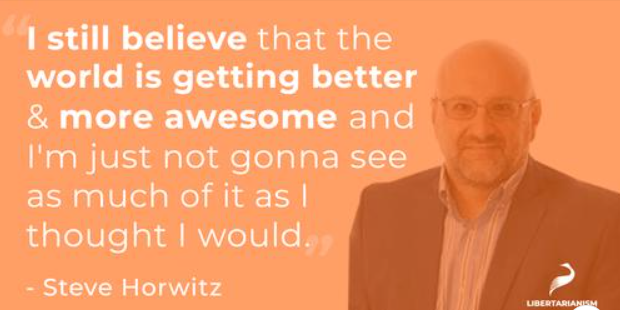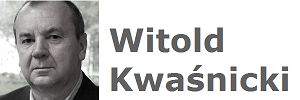Żyjemy w pogarszającym się świecie, czy w coraz to lepszym?
O przyszłości myślimy pesymistycznie, czy jesteśmy pełni optymizmu?
Grozi nam globalna katastrofa, czy jakoś z tego się wykaraskamy?
Jesteśmy pazernymi egoistami, czy raczej nastawionymi na współpracę altruistami?
…
Na dobry początek: Louis Armstrong – What a wonderful world (Lyrics)
Kolekcja artykułów i książek (którą staram się stale uaktualniać), które mogą pomóc w udzieleniu sobie odpowiedzi na te, i inne, podobne, pytania.

Amalteiści i neo-maltuzjanie
- Amalteisci i neo-maltuzjanie – dwie wizje rozwoju
- 18 Spectacularly Wrong Predictions Made Around the Time of the First Earth Day In 1970. Expect More This Year (tutaj org.)
- A Lot of People Agree with a Supervillain about Population (Paul Ehrlich)
- The Flawed Assumptions of China’s Tragic Childbearing Laws
- 4 Problems With the New Climate Change Report
- The counter-intuitive truth about the world’s resources; The Simon Abundance Index: A New Way to Measure Availability of Resources
- Why UPS Is Able to Save the Environment While Ethanol Subsidies Destroy It
- w 1989 roku: ‘U.N. Predicts Disaster if Global Warming Not Checked‘
- There Are Two Energy Futures for America
- Długa droga do gospodarki obiegu zamkniętego
- Ekooszołomstwo rządzi
- U.N. Says 1 Million Species Will Go Extinct Without a ‘Fundamental, System-wide Reorganization
- Alarmism will not help us tackle climate change
- The Economics of Climate Change: What Universities Won’t Teach College Students
- Free Exchange: Steven Pinker’s inconvenient truths
- Epoka człowieka niszczącego świat
- By zmienić świat, potrzebne jest zupełnie inne spojrzenie na ekonomię
- Zielony wzrost to mit. Jedyną drogą, aby uniknąć katastrofy, jest degrowth
- Stodolak: Ekonomia jaskiniowa
- Czcza teza o „kapitałocenie” odciąga od spraw poważnych
- The World’s Recycling System Is Falling Apart. What’s Going On?
- Różnica między ekologią a ekonomią
- Zawracanie biegu rzeki deską – czy to możliwe?
- The Long History of Eco-Pessimism
- The Myth That Our Planet Faces an Overpopulation Crisis
- Planeta w ogniu
- William Whiston, A New Theory of the Earth(jedne z pierwszych w czasach nowożytnych ‘naukowe’ przewidywanie katastrofy w skalo globalnej)
- 50 Years of Failed Climate Doomsday Predictions
- The Myth That Our Planet Faces an Overpopulation Crisis
- Z pamiętnika ekologa
- Stodolak: Innego końca świata nie będzie
- Globalne ocieplenie – rachunek zysków i strat
- Wpisy na FB: 1
- Failed Serial Doomcasters
- Ekonomiczna prawda wojny o klimat, WWR#130
Coraz to lepszy świat
- The world is much better; The world is awful; The world can be much better
- The Greatest Century That Ever Was 25 Miraculous Trends of the Past 100 Years (opublikowane w 1999; skrócona wersja tutaj)
- Things are getting better – so why are we all so gloomy?
- Why Is It so Cool to Be Gloomy?
- The Ancients Expected Things to Get Worse, Not Better (Progress? What’s that?)
- Forty Ways the World Is Getting Better
- We don’t think the world is getting better. This is why we’re wrong
- Why The World Is Getting Better And Why Hardly Anyone Knows It
- Our world is changing. Explore the ongoing history of human civilization at the broadest level, through research and data visualization.
- Human Progress. Explore the state of humanity with data, charts & maps
- Nothing Is More Responsible for the Good Old Days Than a Bad Memory
- Why the Human Brain Is Our Most Precious Commodity
- How the industrial revolution raised the quality of life for workers and their families
- Five Graphs Celebrating Women’s Progress
- Worldviews Are Pessimistic Because They Are Outdated
- These 6 Charts Show How the World is Improving; The short history of global living conditions and why it matters that we know it
- What If Newspapers Reported the Real News about Human Progress?
- Human Progress: The Most Important (and Under-Reported) Fact in Modern History
- Technological Progress Freed Kids from Hard Labor
- Steven Pinker Is Unashamed to Be Optimistic and Pro-Human
- 2011 Almanac of Environmental Trends
- Environmental Trends
- How Julian Simon and Dionysius Lardner Proved the Doomsday Alarmists Wrong
- Jakość środowiska naturalnego
- Gene Editing for Good How CRISPR Could Transform Global Development
- Humanity’s Remarkable Economic Progress Revealed in One Chart
- Factfulness: Why Things Are a Lot Better Than You Think
- Moisture Farms Aren’t Science Fiction Anymore
- How the West Got Rich by Following “the Four Rs”
- Take it From the Arts—the Earth Is Not Doomed as Long as There Is Economic Progress
- How Progress Turns Scarcity into Abundance
- Capitalism Encapsulated: Mises in Four Easy Pieces
- Memorizing these three statistics will help you understand the world
- The longterm change of global living conditions – and our possibilities for the future
- Anxious parents shouldn’t forget how dangerous childhood once was
- The Growth of the World’s Middle Class May Be the Greatest Story of Our Age (warto: tutaj)
- Why WNBA Stars Make (Way) Less Than NBA Backups—and Why That’s Okay
- The market is the real driver of better working conditions
- It’s Time for Techies to Embrace Militant Optimism Again
- How rich are we?
- The best books on Technology and Optimism recommended by Matt Ridley
- W. Michael Cox and Richard Alm, Onward and Upward: Bet on Capitalism—It Works
- 7 reasons you should care about economic liberty
- The Simon Abundance Index: A New Way to Measure Availability of Resources; Introducing the Simon Abundance Index
- Julian L. Simon (1995), The State of Humanity: Steadily Improving
- How Julian Simon Won $1,000 Bet With “Population Bomb” Author Paul Ehrlich
- A Quick History of Humanity and Income Distribution
- Capitalism Is About Working Less to Earn More
- Is the world getting better or worse? A look at the numbers | Steven Pinker; więcej filmów na ten temat tutaj na YouTube
- 50 Ways The World is Getting Better
- Ten Ways the World Is Getting Better
- Wojny o Oświecenie: kilka refleksji o Enlightenment Now, w rok później; Enlightenment Wars: Some Reflections on ‘Enlightenment Now,’ One Year Later
- Bogactwo narodów i nędza Oxfamu
- What has capitalism ever done for us?
- The story of human progress in the 21st century
- Zielona energia może rozwijać się bez subsydiów
- 6 Reasons for Optimism in 2020
- Yeah, market capitalism really is “the greatest thing that ever happened to mankind”
- Optymiści podnoszą głowy
- Could the U.K. Become the Next Singapore?
- Against Environmental Pessimism
- The maps that show life is slowly getting better
- Humanity’s Most Ancient Enemy May Be on Its Way Out

- Paul Ehrlich Ignores Abundance Again
- Simple
- Filmy:
- Hans Rosling on why most of the world is better off than you think (2015)
- The World Is Better Now Than Ever Before (2015)
- Yes, the World is Getting Better. Here’s Why (2016)
- The world is better now than ever before (2016)
- Human Life Is Getting Better. Faster Than Ever Before (2017)
- Our World Is Actually Doing Better Than Ever, According to these 5 clear charts (2017)
- 6 Ways The World is Getting Better (2017)
- 7 Ways The World Is Getting Better (Steven Pinker) (2018)
- The world is going better and better, here’s why (2018)
- Ignore the headlines – the world is getting better (2018)
- Is the world getting better or worse? A look at the numbers | Steven Pinker (2018)
- How the world is getting better, not worse, according to Steven Pinker (2018)
- Antony Davies: The World is Becoming a Better Place (2019)
- Stossel: Life is Getting Better (2019)
- Reasons to be happy: ways the world is getting better (2019)
- Steven Pinker on why he thinks the world is getting better (2019)
- Steven Pinker On Enlightenment Now: Is The World Getting Better Or Worse? (2019)
- The World Is Better Than We Think – Signs The World Is Getting Better (2020)
- The World Is Doing Better Than Ever. Here’s Why You Never Hear About It. (2020)
- The Great Reset Launch (2020)
- WEF by 2030 You’ll own nothing And you’ll be happy (2020) (bez własności prywatnej 😉 )
- The United Nations and the Origins of “The Great Reset” (2020)
- How Innovation Works For the Environment
- Książki:
- Julian L. Simon, Herman Kahn (eds), 1984, The Resourceful Earth: A Response to “Global 2000”, Basil Blackwell.
- Julian Lincoln Simon, 1998, The Ultimate Resource 2, Princeton University Press.
- W. Michael Cox, Richard Alm, 1999, Myths of Rich & Poor. Why We’re Better Off Than We Think, Basic Books.
- Deirdre McCloskey, 2006, The Bourgeois Virtues: Ethics for an Age of Commerce, University of Chicago Press.
- Deirdre McCloskey, 2010, Bourgeois Dignity: Why Economics Can’t Explain the Modern World, University of Chicago Press (wydanie polskie: Burżuazyjna Godność: Dlaczego ekonomia nie potrafi wyjaśnić współczesnego świata, 2017, Instytut Misesa).
- Deirdre McCloskey, 2016, Bourgeois Equality:How Ideas, Not Capital or Institutions, Enriched the World, University of Chicago Press.
- Bjørn Lomborg, 2001, The Skeptical Environmentalist: Measuring the Real State of the World, Cambridge, UK: Cambridge University Press.
- Peter W. Huber, Mark P. Mills, 2005, The Bottomless Well: The Twilight of Fuel, the Virtue of Waste, and Why We Will Never Run Out of Energy, Basic Books.
- Indur M. Goklany, 2007, The improving state of the world: why we’re living longer, healthier, more comfortable lives on a cleaner planet, Cato Institute
- John Brockman (ed.), 2007, What Are You Optimistic About?: Today’s Leading Thinkers on Why Things Are Good and Getting Better, HarperCollins (polskie wydanie: Co napawa nas optymizmem. Czyli dlaczego jest dobrze, a będzie lepiej, 2009)
- Stewart Brand, 2009, Whole Earth Discipline: Why Dense Cities, Nuclear Power, Transgenic Crops, Restored Wildlands, and Geoengineering Are Necessary, Penguin Books.
- Matt Ridley, 2010, The Rational Optimist, How Prosperity Evolves, HarperCollins Publishers
- Steven Pinker, 2012, The Better Angels of Our Nature; Why Violence Has Declined, Penguin Books
- Peter H. Diamandis, Steven Kotler, 2012, Abundance, The Future Is Better Than You Think, Free Press, Free Press
- Angus Deaton, 2013, The Great Escape Health, Wealth, and the Origins of Inequality, Princeton University Press (polskie tłumaczenie: Wielka ucieczka Zdrowie, Bogactwo i Źródła nierówności, PWN, 2016)
- John Mackey, Rajendra Sisodia, 2014, Conscious Capitalism: Liberating the Heroic Spirit of Business, Harvard Business Review Press
- Alex Epstein, 2014, The moral case for fossil fuels, Penguin Group US (film)
- Johan Norberg, 2016, Progress, Ten Reasons to Look Forward to the Future, Oneworld Publications (polskie tłumaczenie: Postęp. Dziesięć powodów, by z optymizmem patrzeć w przyszłość, Fijorr Publishing); recenzja
- Robert J. Gordon, 2016, The Rise and Fall of American Growth: The U.S. Standard of Living since the Civil War, Princeton University Press
- Steven Pinker, 2018, Enlightenment Now: The Case for Reason, Science, Humanism, and Progress, Penguin Random House (polskie tłumaczenie: Nowe Oświecenie. Argumenty za rozumem, nauką, humanizmem i postępem, Zysk i S-ka, 2018). (o Oświeceniu: The Essential Enlightenment)
- Hans Rosling, Ola Rosling, Anna Rosling Rönnlund, 2018, Factfulness: Ten Reasons We’re Wrong About the World – and Why Things Are Better Than You Think (polskie tłumaczenie: Factfulness. Dlaczego świat jest lepszy, niż myślimy, czyli jak stereotypy zastąpić realną wiedzą); recenzja: Podział na kraje bogate i biedne już nie obowiązuje.
- Tyler Cowen, 2018, Stubborn Attachments_ A Vision for a Society of Free, Prosperous, and Responsible Individuals, Stripe Press (The Case for the Longer Term; Tyler Cowen’s Gospel of Prosperity).
- Andrew McAfee, 2019, More from Less: The Surprising Story of How We Learned to Prosper Using Fewer Resources―and What Happens Next, Simon & Schuster UK Ltd.
- Arthur M. Diamond, Jr, 2019, Openness to Creative Destruction: Sustaining Innovative Dynamism, New York: Oxford University Press (Seth Norton review)
- Laurence B. Siegel, 2020, Fewer, Richer, Greener: Prospects for Humanity in an Age of Abundance, Wiley (recenzja: Nuta optymizmu).
- Matt Ridley, 2020, How Innovation Works: And Why It Flourishes in Freedom, HarperCollins Publishers; recenzja: Innowacje – koło zamachowe rozwoju cywilizacyjnego
- Johan Norberg, 2020, Open: The Story of Human Progress, Altlantic Books, Book Review
- Bjorn Lomborg, 2020, False Alarm: How Climate Change Panic Costs Us Trillions, Hurts the Poor, and Fails to Fix the Planet, Basic Books; recenzja: Zielone czy szare (komórki)? Co ważniejsze?; także: Ocieplenie klimatu, degradacja środowiska? Rynek jest odpowiedzią!
- Michael Shellenberger, 2020, Apocalpyse Never: Why Environmental Alarmism Hurts Us All, HarperCollins.
- Virginia Postrel, 2020, The Fabric of Civilization How Textiles Made the World, Basic Books (2020) (Horwitz reviews The Fabric of Civilization: How Textiles Made the World by Virginia Postrel)
- Ronald Bailey, Marian L. Tupy, 2020, Ten Global Trends Every Smart Person Should Know: And Many Others You Will Find Interesting, Cato Institute (Ten Global Trends – Ronald Bailey, Marian L. Tupy with Matt Ridley; transkrypcja) – recenzja: Rapsodia optymizmu; 10 Global Trends Animation
- Deirdre Nansen McCloskey, Art Carden, 2020, Leave Me Alone and I’ll Make You Rich. How the Bourgeois Deal Enriched the World, The University of Chicago Press.
